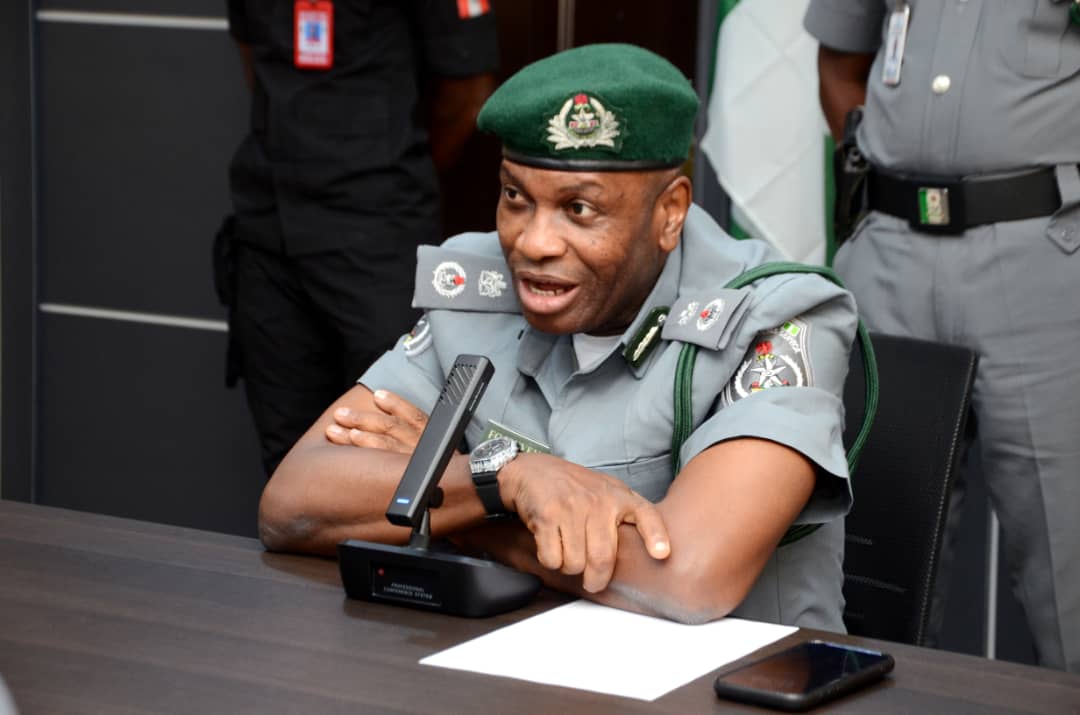
Frank Onyeka, Controller of Customs at Tin Can Island Port is an an unassuming and selfless officer committed to dotting all Is and crossing all Ts on the job.
In this interview with Ismail Aniemu, Onyeka explains how the command was able to galvanise and sustain stakeholders support in his quest for compliance
Beyond the conventional office hours, Comptroller Onyeka stays back at work as late as 10pm to achieve due diligence with hands on supervision of subordinates.
Q. Tin can Island Port is known for many things and expectations are high.Tell us about your experience here in the last 8 months as Area Controller of Nigeria’s second largest seaport.
Succinctly put, it has been a very challenging experience and quite rewarding. When we came in, we met series of issues on ground, bordering principally on our relationship with our stakeholders and our partners. The only thing we had going for us was a fantastic rapport we had was between my officers and the media, which I leveraged on.
Based on the feedback that we had from the trading public, we decided to make it more cordial by bringing them on board, listening to them and giving them psychological boost to let them feel fulfilled and be part of the process. It always comes with a cost.
They will probably want to take undue advantage of us because we want them to come on board. Like I’ve always told them, it’s a win-win situation. In as much as I want revenue, we will equally make them feel part of the process by not necessarily choking them. We listened to them and most of the things they said bordered on multiple alerts. We have, by God’s grace , stopped that in Tin can Island Port.
They spoke to us about containers not going out in good time. The Time Release Study was launched here but we were not working with it.What we did was to equally tell them that will help us to help them by bringing their containers and declaring them appropriately. If they declare appropriately, examination will be performed. By grace of God, if their declaration is in tandem with what we see, nobody will disturb them unecessarily, for example, if batteries are declared and taxes and levies are paid. It’s what we have told them.
This has been very helpful because a good number of them now know that once your declaration is reasonable, you declare appropriately and your container’s operation and examination is performed, it’s going to be seamless operating with us. So , sincere declaration is the key. It is going to assist us greatly in trade participation. It has been a very rewarding experience.
What we found out is that was probably, there wasn’t much sensitization, dialogue and discourse on that , which we have done. It has been very rewarding. Of course, they cannot be 100% compliant, but a good number of them are very compliant. If in a situation where you have about 86% people complying, we say we are doing a good job, because there is nothing that is casting stones. Everybody cannot sit and face the same place. As you are pulling, some people are pushing and as you are pushing, some people are pulling. If we have a good number of people on the same page with us on the betterment of the system, we say we are doing well, to the glory of God.
Q. You recently posted N747 billion half-year collection, showing an increase in what you collected in the same period last year. What did you do differently to get that?
What we did differently is just what I have said. We keep engaging consistently and we keep telling them what we want. Of course, where we err, I try as much as possible to right the wrong almost immediately in their presence. What I have done, is to leverage on their feedback. I have also told them not to massage my ego.They should tell me what I am doing that is not good for them .If it makes sense, obviously, why won’t I?
Now, I will say I have two forms of alerts from my office, which is compliance. Refer to CAC or compliance team is different from invite. If I say refer, it means I have seen an infraction that will definitely need value addition. But if I say invite, it means I just have to have an idea of what you have and it could be here or there. So, on that basis, if you are sure of yourself as a compliant trader, you need not invite CAC or compliance team. All you need to do is to do a video of your examination.
Something happened on a Thursday night. We had almost closed and I was almost closing for the day at about 10 p.m. Somebody ran into me. He was a young man . He said, my officers asked him to come, but my officers said he should come back to my office.I said, what’s the issue? He said he’s carrying batteries and it was alerted. I said what kind of batteries was he carrying? He said it’s normal car batteries.
I asked if he had the video. He said, yes. He showed me the video, and it was in tandem with the declaration. I told him to go back to the gate and tell them he had shown me the video and that I said they should exit it.As someone that is very sure of himself, he did a video of what he’s carrying. He need not call me to witness it, except I said, refer. If I say refer, I’m 100% sure that there must be value addition. But then, I had to confirm what he was carrying , if it was lithium battery or car batteries as declared? So far, it was just car batteries.
We did not need any value addition because he paid appropriately and I allowed him to go. Lithium batteries are more expensive. The values are higher. But he did not carry lithium batteries. He had very normal car batteries, which he had paid for and in my opinion, he paid very well. I told him to exit. Those are the things that they are leveraging on and I want to believe that those are possibly one of the issues that are making things work seamlessly for us. Constant engagement and giving them the ability to make sure their examination is performed with their video.
If you have your video, no police will stop you on the road. If containers are open and examination is performed, no policeman has that locus to stop you on the road. You have declared batteries, for example. If you paid as per what your declaration is, your HS code is in order , no one has the right to stop you on the road. If the examination is not performed in that port there, information will be sold to the police and they will meet you outside and request that they examine the container . No marine police or anyone will open your container on the road if examination is performed at the seaport.
That’s why I said I will not talk to any policeman. Let them do their job. If what you are carrying is what you declared, sincerely, nobody is going to stop you on the road and that has worked for us.
Q.Let’s look at the role that demand notices play. From our survey, almost every command in the country have this recurrent interventions of issuing demand notices to make up for shortfalls. Give us an overview. How does demand notices contribute to your revenue collection? That also shows the level of hide seek and possible infraction or under declaration from stakeholders.
I’m a revenue officer through and through, and like I keep telling people, demand notice can emanate from anybody at any point in time from any angle for as long as it can be substantiated. For example, let’s imagine that I have a container of batteries and I performed an examination because performing a 100% examination is almost an impossible task. It is like opening your container, and offloading like 30 cartons of batteries, and as far as we are concerned, batteries were declared. Then by the time we examine, we will drop about 30 to 35 cartons and discover that they are all batteries. Why stress the owner ? Maybe because it’s about to rain and we don’t want rain to spoil the consignment and then I ask them to reload because I’ve seen batteries.
Then, somebody shows up with an information that beyond batteries, there could be three or four generators that are about 10 KVA that have not been concealed. At any point in time, somebody decides to intervene, and that idea is substantiated, there must be value addition.If before he leaves the gate, like there are times when I was at the gate in Apapa and Onne. What I did in Onne, was what I replicated in Apapa. I sent boys to the field to probably scan around containers that are not well-examined to let me know the content. Before they got to me, I knew why they were not well-examined. To that extent, therefore, when they got to me, I leveraged on it and asked them to open. I then gave the owner a notice at the gate.
Sometimes, they’ll ask if it wasn’t a customs officer like myself that examined and I’ll say they might not have seen what I saw. Mere looking at the HGT, I must have seen the weight and where it’s coming from and I can ask question. Demand notices, as far as I’m concerned, in my personal opinion, can be issued at any point in time for as long as you can defend it. Ordinarily, as a valuation officer, if I treat any job because of my experience and the variables I put into doing the job, nobody can ask me questions on that job.Nobody can query that job, but some of us, because we don’t do in-depth analysis of whatever we are doing, people tend to equally add additional value on demand notices. Of course, it’s a misnomer.
But then, I keep emphasizing that the Federal Government needs this money.In as much as we have pledged not to choke in line with, President Bola Ahmed Tinubu’s New Hope Agenda, for example, to make things easier and seamless for Nigerians, we are not going to choke them. But that is not to encourage people to run away with government’s money. So, for as long as demand notices are defended, why don’t we give them?
Q. Let’s look at compliance.Assuming you are an academic, a lecturer, or a professor now, who wants to evaluate , what was the degree of compliance before you assumed the office of the comptroller here? What is it now on the scale of 0 to 100?
I leverage on the fact that people were grumbling when I came. I engage consistently, and for me to stay beyond normal time, gave me an edge because once the flag comes down at 18:00 hours, I may still back for an extra hour to make it 19:00 hours. I extend beyond that so that I can be able to listen to complaints. I move around almost alone within the compound , listening to what people say. I don’t want people to come and praise me. What am I doing that you are not happy with? Like I must tell you, to a greater extent, I added value my stay here. I speak the local language. I’ve been in and out of Tin Can for a while.
To the glory of God, I have friends. I’m a grassroot person and I’ve been able to take advantage of that to make sure that we listen to people’s problems and insist that we don’t choke. I don’t joke with that slogan of ‘choke’. It was a slogan I brought to bear in Tin Can and it has come to stay. I tell my traders, I tell my stakeholders, partners that if there’s any customs officer that is harassing them, they should let me know.
Anytime I address my officers , I always tell them not to choke anybody, because they are collecting salary. You see, if you threaten your officers that if they do XYZ abnormally, they will meet you at the other side.If they are used to choking people, and my stance goes against not choking, they won’t choke people. You cannot satisfy everybody, but that has assisted me greatly.
When we say we came, we met, we probably have not conquered, but we’ve done a great deal to make sure that people are happy. On compliance level, from 0 to 10, I must say we are at 6.5 to 6.8 compliance level. Of course, there is room for things to get better, and that’s what we are still working towards.
Q. For customs in Nigeria, the Unified Custom Management System, also called B’Odogwu is in vogue. Please, tell us the level of penetration, and to what extent has it displaced NISIS 2, and how stakeholders are embracing it.
Level of penetration is a gradual thing. It’s a new system. I call it a game changer. It’s one innovation brought about by the Comptroller General of Customs, Bashir Adewale Adeniyi that has been seen to be a game changer, that has come to stay. For everything that is new, compliance is always coming in snail speed. Moreso, the number of our partners have not actually kicked that concept due to lack of knowledge. So what we have done, and what we are still doing, is consistent capacity building.We keep advising ,we keep giving them pep talks, we keep telling them. In fact, in Tin Can Island today, there’s a designated online channel on Wednesdays, 10:30 to 12:00 noon, to attend to stakeholders.You can ask questions on that platform, and we’ll answer you. If you want to make inquiries, we’ll answer you.
It’s a WhatsApp platform for making enquiries.It’s not limited to that. We still have training facilities here that we leverage on on a weekly basis. We train every segment of the society on B’Odogwu because it is new, and the problems they’re having is they are not taking it easy to be able to key into it. But I keep telling them, NISIS 2 might go at any time. So, the earlier we key into this game changer, the better for all of us.
I must tell you that they are willing and eager. That level of sitting down to learn is what they’ve not really exhibited .We are pushing them to do such, because there’s no other way than B’Odogwu.
Q. Let’s move away from revenue, technology, stakeholders engagement. Tell us about your enforcement. Do you make seizures? Are there arrests? What are the seizures you have? What are the value? What are the preventive measures you have put in place?
We’ve done seizures of about N8.2 billion. I don’t have these records for now and I handed over to the National Drug Law Enforcement Agency (NDLEA). I will not say the measures I’ve put in place are airtight. They are more than watertight, because Tin Can is known for something, and we are all out waiting for them ,so that we will use them to shine. Fortunately for me, they know my stance already, so they are not coming here. They are going else where.
In terms of anti-smuggling, we are on top of our game. Those who know us know that there are certain things that can never happen under my watch, and I thank God for that. In terms of anti-smuggling, we are up and running. On seizures too, we thank God.
Q. On this task, what is your greatest challenge?
So far, so good , we have been praying, working tirelessly to make sure that agents, stakeholders, importers, exporters keep 100% to the game-changing force. That is your strategy.
Q.What challenges you most?
The challenge is that people are not upcoming. So , we are trying to push for them to come onboard because it will be unfortunate if at the end of the day their consignments end up in NISIS and it goes off. It means they have to start all over again and it’s not going to be an easy task.We are pushing, encouraging and appealing that they should come on B’Odogwu as soon as possible. It’s quite challenging but we’ll get there.






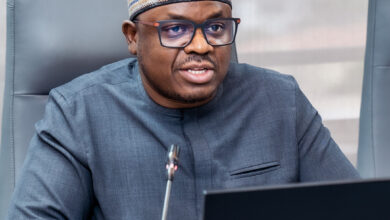
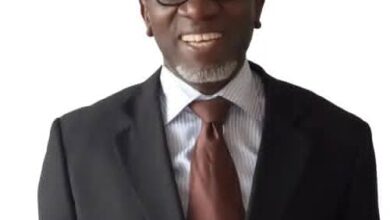
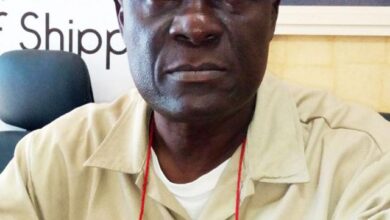
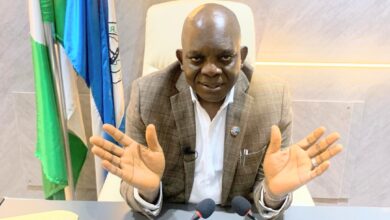


One Comment